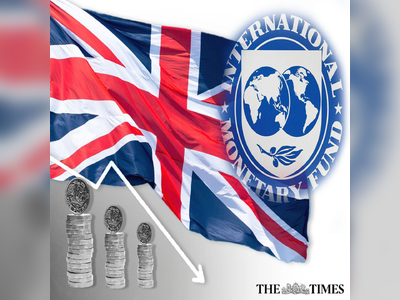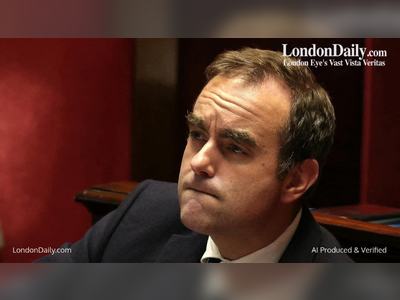
BoE’s Alan Taylor Warns UK Economy May Face a “Bumpy Landing” as Inflation and Trade Pressures Mount
Bank of England policymaker flags risks of volatile transition, urging cautious timing of rate cuts amid weakening growth and shifting inflation expectations
Bank of England Monetary Policy Committee member Alan Taylor has warned that the UK economy is increasingly vulnerable to a “bumpy landing,” as falling inflation expectations, trade headwinds and uncertainty over rate cuts cloud the outlook.
He delivered the warning in a speech at King’s College, emphasising that ongoing policy challenges and external pressures could derail a smooth transition.
Taylor argued that inflation — currently above target — may decline too sharply, with the risk that it falls below the Bank’s two percent goal by late 2026.
He cautioned that trade diversion pressures stemming from U.S. tariffs might weaken growth more than they push up prices, complicating the inflation outlook.
In his scenario, the economy could slip into a prolonged period of weakness, with output and employment underperforming potential levels.
He also revisited his past advocacy for a more aggressive rate path, noting that recent data now supports a view that the Bank of England should contemplate up to five cuts in 2025, rather than the four currently expected.
However, Taylor stopped short of endorsing large single reductions, instead urging a cautious and communicative approach to easing policy.
Taylor has long been among the more dovish voices on the committee, having supported cuts in five of seven recent meetings.
His remarks come amid broader concerns within the Bank about the pace of disinflation, and growing pressure from international bodies like the IMF to approach rate easing with “very cautious” steps.
The tension between supporting growth and preserving price stability now sits at the centre of UK monetary policy debate.
As policymakers weigh the path ahead, Taylor’s “bumpy landing” warning underscores the fragility of the current economic dynamics and the risk that mis-timed easing could leave inflation expectations untethered.
He delivered the warning in a speech at King’s College, emphasising that ongoing policy challenges and external pressures could derail a smooth transition.
Taylor argued that inflation — currently above target — may decline too sharply, with the risk that it falls below the Bank’s two percent goal by late 2026.
He cautioned that trade diversion pressures stemming from U.S. tariffs might weaken growth more than they push up prices, complicating the inflation outlook.
In his scenario, the economy could slip into a prolonged period of weakness, with output and employment underperforming potential levels.
He also revisited his past advocacy for a more aggressive rate path, noting that recent data now supports a view that the Bank of England should contemplate up to five cuts in 2025, rather than the four currently expected.
However, Taylor stopped short of endorsing large single reductions, instead urging a cautious and communicative approach to easing policy.
Taylor has long been among the more dovish voices on the committee, having supported cuts in five of seven recent meetings.
His remarks come amid broader concerns within the Bank about the pace of disinflation, and growing pressure from international bodies like the IMF to approach rate easing with “very cautious” steps.
The tension between supporting growth and preserving price stability now sits at the centre of UK monetary policy debate.
As policymakers weigh the path ahead, Taylor’s “bumpy landing” warning underscores the fragility of the current economic dynamics and the risk that mis-timed easing could leave inflation expectations untethered.










